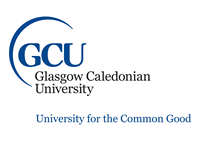Glasgow Caledonian University/ The Glasgow School for Business and Society https://www.gcu.ac.uk/gsbs/
Project Reference Number: GSBS/2022/002
Supervisory Team:
Director of Studies: Name: Nina Teasdale
Email: [Email Address Removed]
GCU Research Online URL: (essential) https://researchonline.gcu.ac.uk/en/persons/nina-teasdale
Second Supervsior: Name: Sara Cantillon
Email: [Email Address Removed]
GCU Research Online URL: (essential) https://researchonline.gcu.ac.uk/en/persons/sara-cantillon
Third Supervisor: Name: Emily Thomson
Email: [Email Address Removed]
GCU Research Online URL: (essential) https://researchonline.gcu.ac.uk/en/persons/emily-thomson
Background
The focus of this PhD studentship is on flexible working arrangements (FWAs). Lockdown measures introduced to curb the spread of COVID-19 caused the rapid and large-scale use of home and flexible working with workers simultaneously juggling employment, schooling and care obligations. Survey evidence focusing predominantly on working parents suggests this forced-change has engendered perception shifts among workers and managers towards FWAs, with the potential for profound change (Chung et al., 2021). However, such evidence also suggests that while pandemic-induced shifts, particularly around homeworking, have been fairly even among women and men, they have been used most by those working in professional occupations producing a ‘two-tiered’ system (Lufkin, 2021). Indeed, while existing research has emphasised the deeply gendered underpinnings of FWAs (Wheatley, 2017), the classed-dimensions and experiences are under explored (Warren, 2015; Teasdale, 2022). This study will contribute to this gap and interrogate the ‘playing out’ of FWAs following the rupture of COVID-19 and whether inequalities among different groups of workers have in fact amplified rather than ameliorated.
The PhD will provide a novel contribution to the mainly survey-based literature on COVID-19 and FWAs through qualitive research in two UK case study organisations (access negotiated via WiSE networking contacts). Situating FWAs within organisational discursive practices, the case studies will involve analysis of policy and organisational documents and semi-structured interviews to explore both the experiences of workers employed in lower-level organisational positions (with and without caring responsibilities) and the attitudes and perceptions of line managers. Adopting an intersectional theoretical and analytical approach the study will inform the government commitment to review policy-making in this area. It will also provide a more nuanced empirically based understanding of the complex classed-experiences of FWAs in the context of COVID-19 and the potential for enduring shifts in working patterns and creating more equal societies.
How to Apply
This project is available as a 3 years full-time PhD study programme with expected start date of 1 October 2022
Applicants should possess an honours degree (2:1 or above) and/or Masters degree in a related area of study, demonstrating sufficient evidence of academic/research ability in their chosen research area.
Candidates are encouraged to contact the research supervisors for the project before applying.
Candidates to provide 1,000 word research proposal outlining their interest in the proposed PhD topic and the relevance of their current qualifications, research interests and experiences.
Applicants should apply for their preferred intake date using the Economics links via the Application Process page.
The closing date for applications is Wednesday the 11th May 2022.
Applicants shortlisted for the PhD project will be contacted for an interview within four weeks from the closing date.
Please send any other enquires regarding your application to: [Email Address Removed]

 Continue with Facebook
Continue with Facebook



